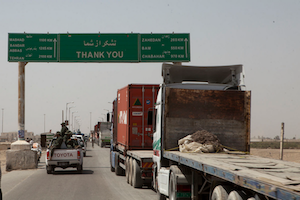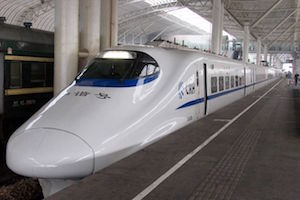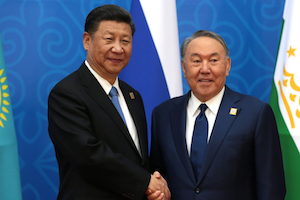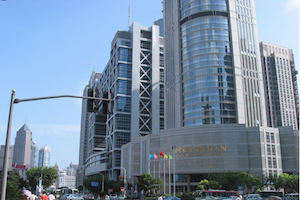Sri Lanka's Lesson for Eurasia
By Stephen Blank
September 27, 2018, the CACI Analyst
Sri Lanka’s experience with China’s Belt and Road Initiative is a cautionary tale for governments in Eurasia that wish to affiliate with this mammoth project. Chinese investments in the port of Hambantota already in 2004 identified as part of China’s “string of pearls” strategy in the Indian Ocean. However, investments took the form of loans that the Sri Lankan government could not repay. After months of negotiation and heavy pressure, the Sri Lankan government turned the port, including all its structures and capacities, plus 15,000 acres around it to China in late 2017.

Afghanistan-Iran Trade Corridors to Bear Fruit for Both India and China
By Tristan Kenderdine
July 17, 2018, the CACI Analyst
A strategic deployment of trade corridors is taking shape across Afghanistan and Iran as both India and China subvert each other’s trade strategies through key geoeconomic states. Afghanistan’s land corridor to Chabahar port connects it to India by sea, creating a Persian-Gulf to Caspian Sea corridor, while the Afghan air corridor to India provides a parallel, more direct trade route. By contrast, China’s twin economic corridors in the region run perpendicular: north-south through Pakistan to the Gulf, and east-west through Iran to Istanbul. Pakistan’s Gwadar and Iran’s Chabahar are thus effectively in the same geopolitical node, connecting very different Great Game trade strategies.

A Decade of China-Europe Trains
By John C. K. Daly
May 8, 2018, the CACI Analyst
Almost ten years ago, a historical moment in rail transport occurred when on October 6, 2008 a train arrived in Hamburg, Germany, 17 days after departing from Xiangtan in China’s Hunan province. While the service was at the time considered as too inconsistent and too slow to gain any real market appeal, China persisted with various train routes across Eurasia with regular service established in 2012. According to China Rail Corporation, 3,673 trains transited Eurasia in 2017, linking 35 Chinese cities with 34 European cities in 12 countries, a number set to rise to 4,000 in 2018. This commitment to free trade stands in rising contrast to the recent protectionist policies adopted by the U.S. Trump administration, divergences which seem likely to grow in the near future.

China's Belt and Road Initiative: Relieving Landlocked Central Asia
By Avinoam Idan
May 1, 2018, the CACI Analyst
One of the most significant factors impacting Central Asia is its landlocked geography. This situation affects almost every sphere of life—foreign policy, national security and economy. However, China’s BRI project may alter the impact of China on the region. China’s BRI can transform Central Asia from its landlocked state to a transit region between Asia and Europe. Essentially, China is unlocking landlocked Central Asia. Recently, there have been two significant developments: the increase in volume of freight passing through the “dry port” of Khorgos, (in Kazakhstan), and the acceleration of the implementation of the China-Pakistan corridor leading to the Indian Ocean. Each of these developments plays a part in the Chinese initiative and in its impact on Central Asia. The BRI is, thus, the trigger for the geopolitical earthquake in the region.

China's Policy Bank Investment Profits from Uzbekistan's Monetary Policy Reform
By Tristan Kenderdine
April 16, 2018, the CACI Analyst
Following high-profile visits by Premier Li Keqiang in 2015 and Xi Jinping in 2016, China’s is domestically devolving its trade and industrial relationship with Uzbekistan to provincial and prefectural levels of government. However, financing for China’s investment in Uzbekistan remains either directly invested or indirectly coordinated by one of China’s three central policy banks, Export-Import Bank of China, China Development Bank, and the Agricultural Development Bank of China. Since 2014, the Exim Bank has committed to fund Belt and Road projects worth around US$ 120 billion, which corresponds to nearly a full year’s GDP for Uzbekistan. These quasi-sovereign wealth funds certainly pose a systemic debt risk, but are not necessarily a debt-trap.






 Book S. Frederick Starr and Svante E. Cornell,
Book S. Frederick Starr and Svante E. Cornell,